Student Blog
Fieldwork
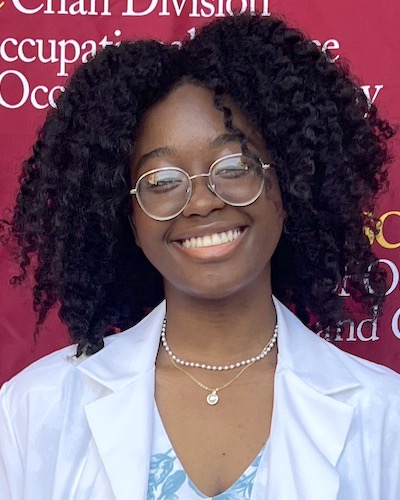
To Fieldwork, Thanks for Everything! ⟩
April 19, 2024, by Jaida
Fieldwork
Fieldwork. It can be the best of times, it can be the worst of times. No two experiences are the same which can be both a blessing and a curse. A little bit before this time last year, I was starting off my first fieldwork experience at an inpatient acute hospital — talk about being nervous! The fact that any moves I made with the patient directly affected their wellbeing had me shaking in my boots! If I could go back in time, I would tell myself, “You’ve got this!”
Here’s what each of my fieldwork experiences has taught me and some takeaways that I hope can be helpful for you:
- Adult Rehab: Being in a fast paced environment can be nerve-wracking, so don’t forget to relax and enjoy the experience! Rely on your Fieldwork Educator to help build your clinical reasoning skills. They are a resource so use them! You’ll also have numerous resources from class and lab time, as well as your instructors, to help facilitate your success. While a level I fieldwork is more observation based, you are able to ask your educator questions to deepen your understanding about certain diagnoses. For example, if there’s a certain condition you learned in class that you’re wanting to know more about, your Fieldwork Educator can give you great insight as to how they have navigated it from their experiences.
- Mental Health: They just want to be treated like people, so don’t see them for what condition they have, but rather the potential of who they can become. Building rapport is key so if you’re a people person, this is your time to shine! Being in this setting can allow you to work on those interpersonal skills. Your classes at USC will teach you how to use your own therapeutic use of self, so feel free to ask your instructors how to help develop this skill more.
- Pediatrics: FUNctional treatments are key! This means that majority of the sessions will look like the therapist is playing with the child, when they are actually working on certain skills to work on developmental milestones. Even though they are a child, they also deserve some autonomy when it comes to figuring out what activities they want to do during their session. It’s not the end of the world if a child gets upset during sessions; if anything, this now gives you a sense of their likes/dislikes and how to problem-solve going forward.
- Geriatrics: Leave the ageism behind! Older adults can teach you so much about life. Don’t be afraid to ask questions about their lives; you never know what interesting things they’ll tell you. In doing so, you might also be able to provide insight on what activities the patients like to do. Continue to think outside the box and explore new avenues for engaging in treatment.
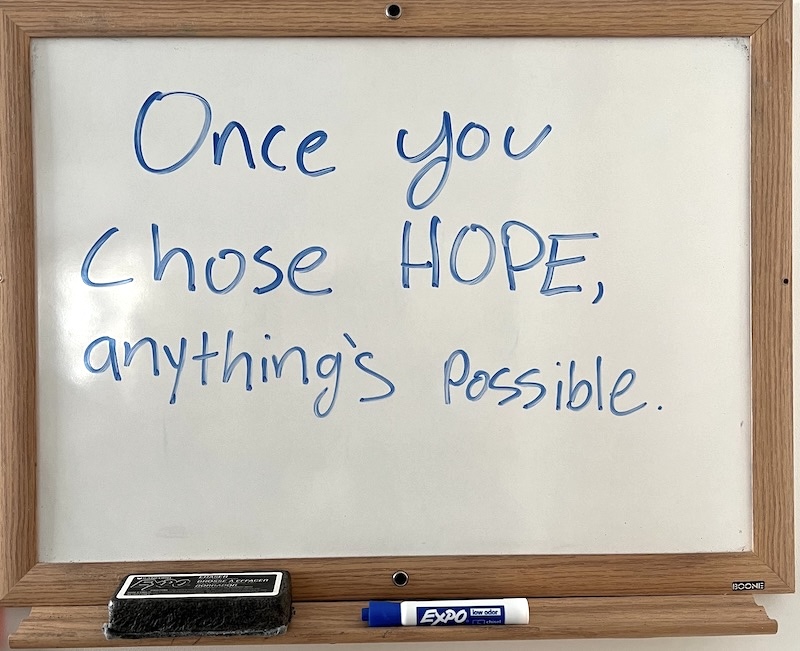
Loved reading the messages displayed on the whiteboard while at an inpatient acute setting; always brightened my day!
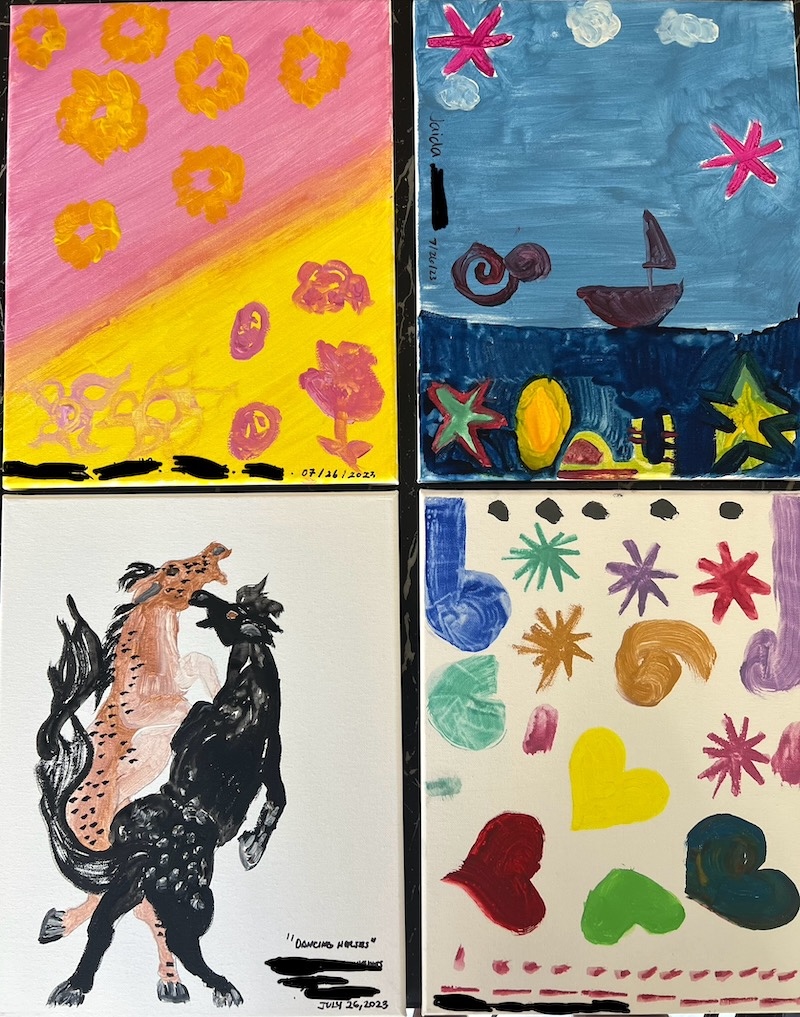
Had so much fun doing collaborative paintings with the residents on my last day at a board and care setting
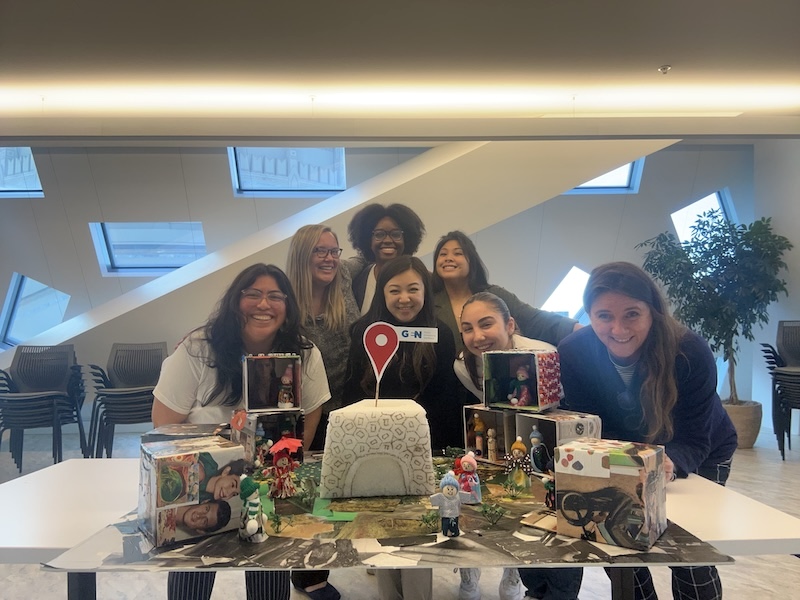
Working with these amazing people has allowed me to understand what true productive aging looks like with the members that come have fun here!
I am so grateful for all of the interactions I’ve had and lessons I’ve learned from each of my Level I fieldwork sites. Remember to engage in self-care as you go through your different immersions and give yourself some grace. Cheers to Level I and on to Level II!
⋯
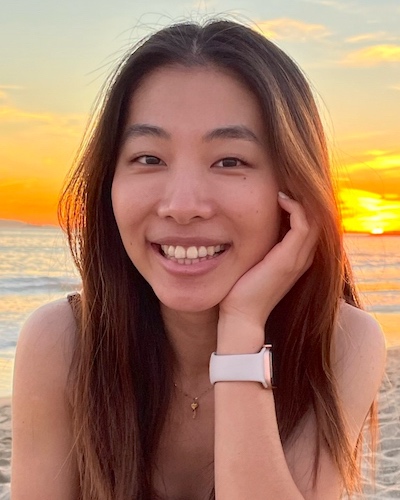
An OT (student) Needs Her Occupations! ⟩
October 31, 2022, by Yoojin
Fieldwork Living in LA School/Life Balance
I have a bachelor’s degree in occupational therapy, and I’ve known what OT was for more years of my life than I have not, but this summer I rediscovered the importance of engaging in meaningful activities to add purpose to each day, especially in the midst of stressful life changes (permission granted to say “Duh!” at this point).
This summer was one of the most challenging yet rewarding summers of my life. I spent it completing my Level II fieldwork at a fast-paced outpatient pediatric clinic. Just three days after graduation, I was learning terminology that sounded like a new language, loading up on snacks and interesting podcasts for my 1.5-hour commute, and stomaching my new identity as a post-grad without a real break in between the semesters.
Unsurprisingly, I was burnt out and questioning my competency as an OT student and future clinician. To say the very least, I was exhausted at the end of each day. I felt fulfillment providing care to the (most adorable) kiddos at the clinic, but everyday I was sighing along to the exhaust pipe on my car as Henry (my car) and I made the trip each day. Though only 12 weeks, I knew this current lifestyle was not sustainable for even a short summer. More naps and cups of coffee were not going to cut it for me. I wanted to practice the healthy habits I was taught (and am teaching others) to instill a lifestyle I was proud of and could carry with me to when I am working.
Even though I knew the OT principles and research behind engaging in occupations, it was a little hard to get started. Nothing could beat the thought of being at home, but I remembered how I felt after I forced myself to go on a short run at the park after an especially difficult day at fieldwork. It was an amazing way to decompress and I didn’t even feel significantly more tired!
I thought of my favorite restorative occupations, and reached out to my friends to join me! I spent the remainder of my summer balancing school and life: hiking, making clay ring dishes, running, going to concerts, and trying out new restaurants are some of my fondest memories. I still engage in all these occupations and they bring so much more meaning into my everyday life.
Here’s a little photo recap of my summer!
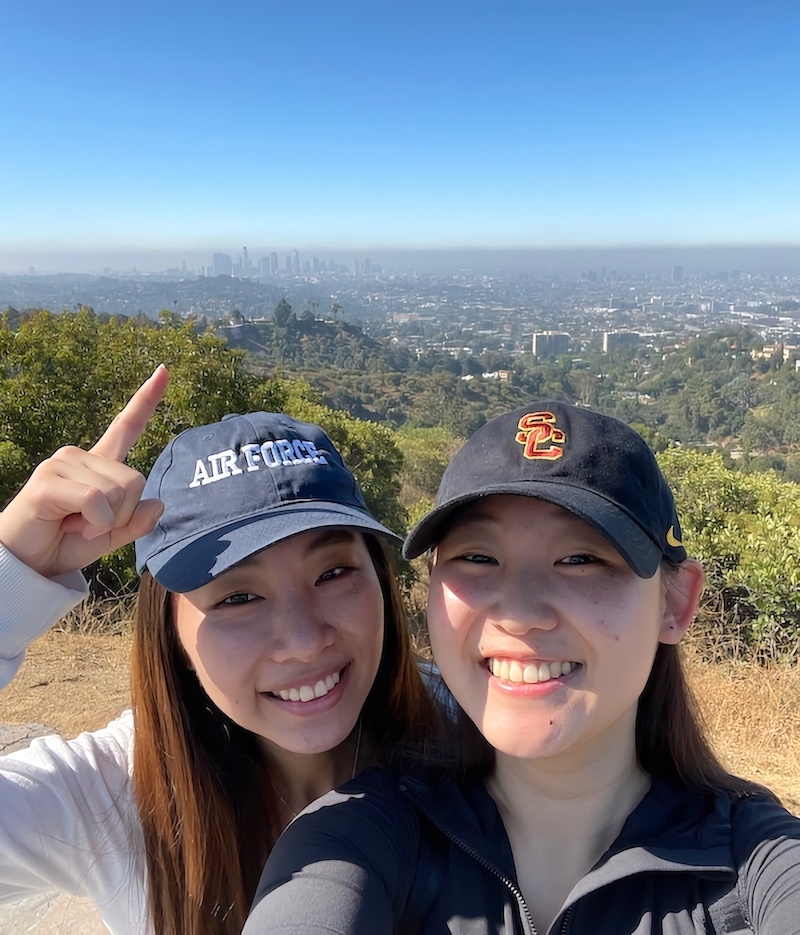
One of my favorite hikes in LA!
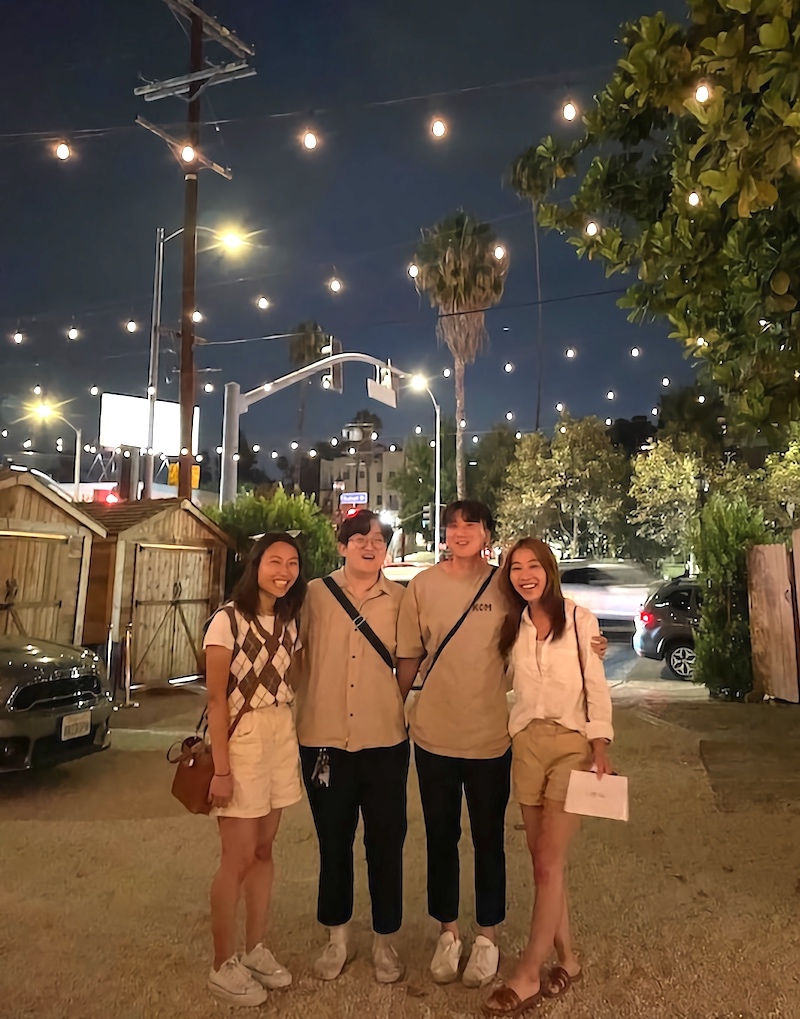
At Barcari in Silver Lake!
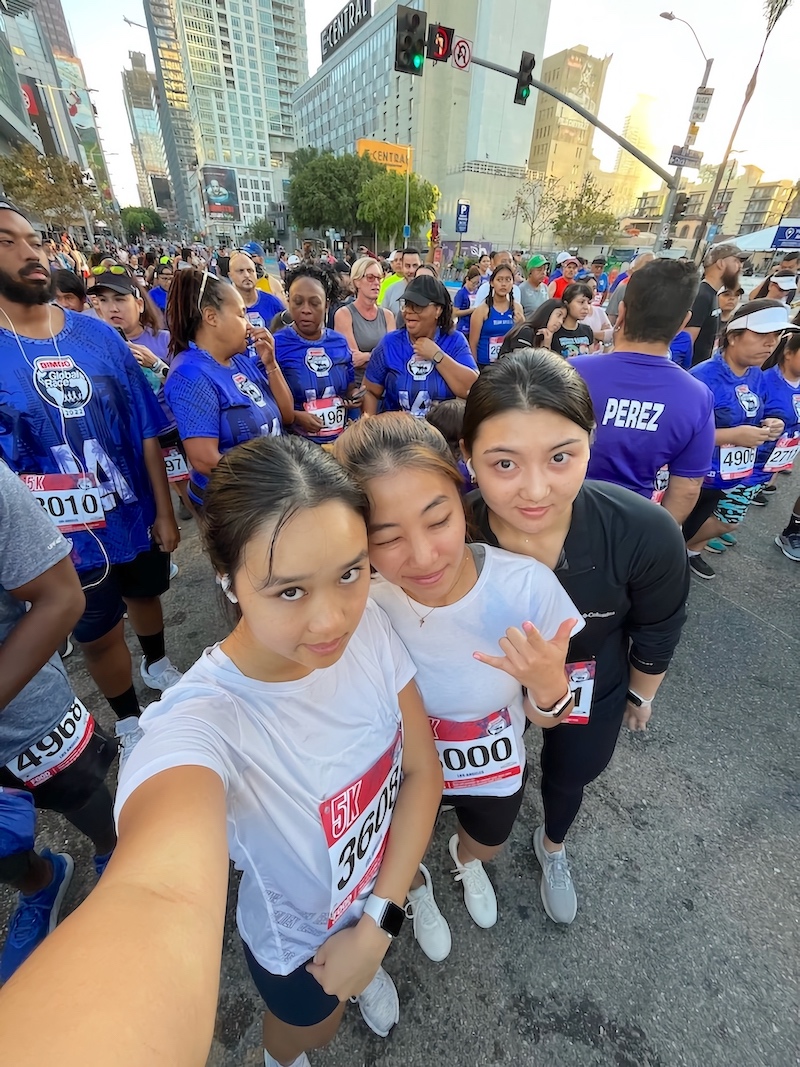
Running a short race after a summer of running!
⋯
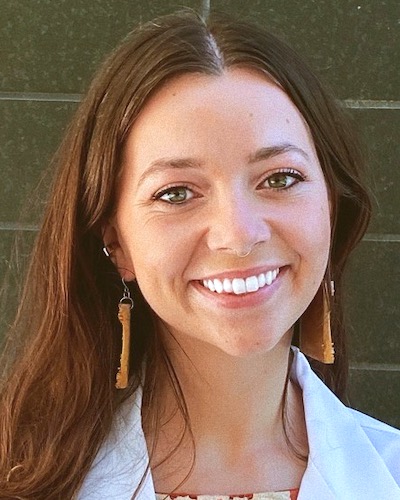
From Patient to Therapist: Rediscovering Occupational Therapy ⟩
September 9, 2022, by Leah
Fieldwork Living in LA What are OS/OT?
I first learned about occupational therapy from my cousin’s girlfriend, who was an occupational therapist. I was ten years old, undergoing chemotherapy for liver cancer, and spent most of my time in hospitals and at home. Besides feeling fatigued and nauseous, I had lost many of my occupational identities, such as being a student, athlete, and friend. My cousin’s girlfriend began to visit my home to teach me how to paint, and we would talk about schoolwork and life. I looked forward to her visits, motivating me to get up from bed, and I received a lot of comfort in starting to see myself as an artist. Following treatment, this experience stuck with me as I became involved in an oncology summer camp that uses occupations to provide healing and respite to impacted families.
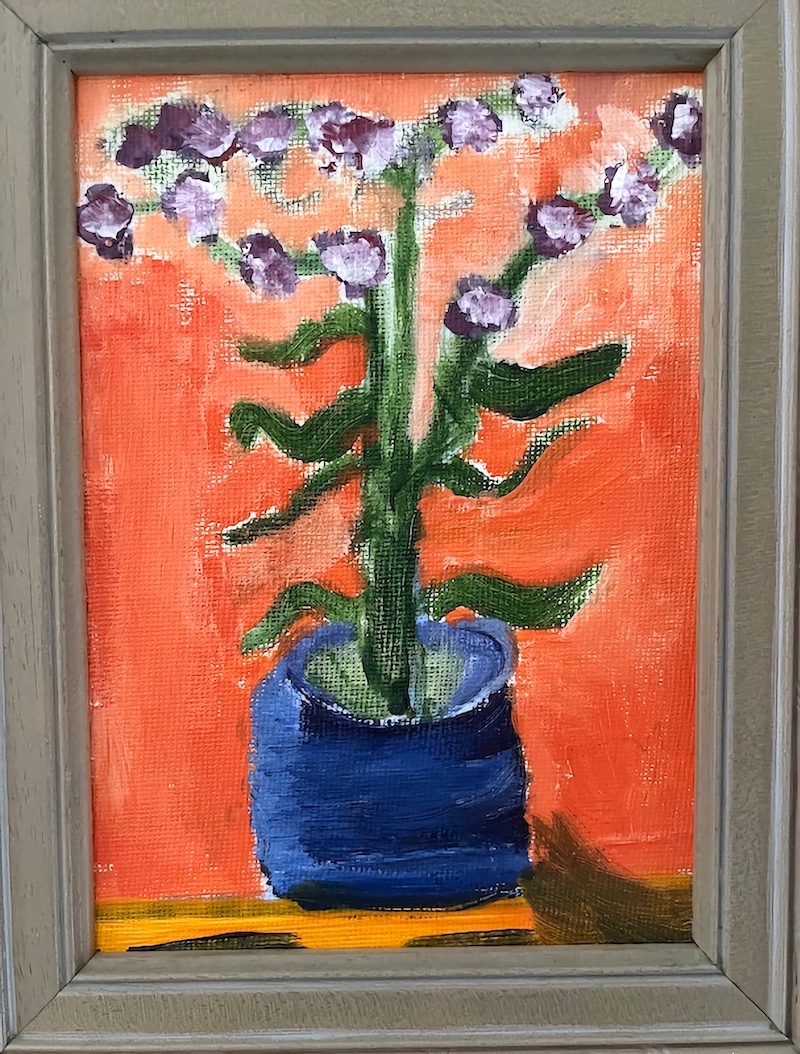
Here is a painting I made during one of my informal OT sessions with my cousin’s girlfriend
Years later, I loved studying psychology, neuroscience, and philosophy during my undergraduate years. Due to my connection with cancer treatment, I continued to be drawn to health care positions and enjoyed my health science classes. Still, I had no idea what career I wanted to pursue.
Following college, I began working in permanent supportive housing. Because of my previous work in research, I thought I might want to be a clinical psychologist. I fell in love with working 1:1 with people and using occupations as a therapeutic means. Some activities I participated in with the residents included shared meal times, grocery shopping, laundry, resource seeking, dog watching, visiting the zoo, birthday parties, and bowling. My favorite part of the role was spending mornings in conversation and sitting in the lobby with residents. I became closest with the public health nurses in the building, and it continued to make me consider working in health care.
Because I was still pursuing clinical psychology, I began working as a research coordinator. While working at a Multiple Sclerosis clinic, I learned many things about myself, both good and bad. I loved working with the participants and often would talk with participants on the phone for far longer than necessary while completing assessments. I loved collaborating with an interdisciplinary team in the clinic when working with participants. I also learned that while researching was essential and exciting, I did not want to make research my career. I had a hard time in an office job and felt like jumping out of my seat every day.
At the beginning of the pandemic, I had a long conversation with my good friend from college who was currently at USC’s OT program. I shared all my doubts and hesitations about pursuing clinical psychology, and I realized my friend was describing my dream job. He discussed his love of occupational therapy’s holistic approach and the connections he had built during his fieldwork experiences. He then told me how he was about to begin his doctoral residency in an oncology hospital! I was overwhelmingly happy for him and a little jealous, so I decided to learn more about pursuing occupational therapy.
I then spoke with several occupational therapists over zoom/phone (hello pandemic!) about their roles as occupational therapists in hospitals, community mental health, and school settings. During every conversation, I felt myself light up and easily connect with the therapists about what I valued about working with people. Importantly, every therapist expressed satisfaction and pride in their work and the longevity in which they have enjoyed their job. I was drawn to the flexibility and scope of the profession. I reflected on my occupational identity and how vital my cousin’s girlfriend was to me during my medical treatment.
And now, I love my experience studying to be an occupational therapist. I spent this last summer in an inpatient acute adult setting. Next summer, I have my dream fieldwork, working in pediatric oncology at St. Jude’s Hospital in Memphis, TN!
⋯
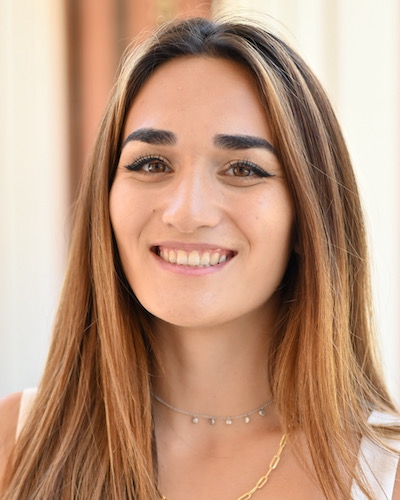
Thank You, Occupational Therapy ⟩
August 22, 2022, by Leah Mary
Classes Fieldwork What are OS/OT?
The first time I heard about occupational therapy was during my Freshman Year (2016) in my seminar class with Dr. Jesús Díaz. One of our classes was dedicated to introducing us to occupational therapy. At the time, I was volunteering in different research labs studying the brain and thought I wanted to get my PhD in Neuroscience. I didn’t want to pursue occupational therapy (I know, what was I thinking!?).
Fast forward to the end of my Sophomore Year, I was pretty unhappy. While I found the research fascinating, something was missing. Most of the time, I was behind the computer, not interacting with individuals (and I’m a huge extrovert). I felt utterly lost. This was around the same time my grandmother was diagnosed with Glioblastoma, an aggressive brain cancer that impacted her overall well-being, requiring multiple brain surgeries and significant therapies.
My grandmother had a PhD in education, was a biology teacher, and my best friend. I was devastated seeing such an incredible person go through something so terrible. But my grandmother was determined and motivated to stay strong and healthy as long as possible. That summer, she went to inpatient and outpatient therapy at Shirley Ryan AbilityLab in Chicago. This was the second introduction I had to OT, however, this time in its most authentic form. I witnessed how OT positivity impacted her life. The therapist used meaningful occupations to motivate and connect with my grandma (she loved OT the most). And because the therapy was embedded into her daily life, she could continue at home when discharged. OT changed her life.
Right then, I knew that pursuing a career in OT was my calling. I loved the therapist’s interactions with their clients, the creativity involved in incorporating meaningful occupations, and their impact on people’s lives.
Fast forward again to now. I just completed my last II fieldwork at Shirley Ryan AbilityLab (on the same floor my grandmother was on) and graduated from the Entry Level Master Program. OT changed my life. It’s weird, but every time I engage in fieldwork or OT courses at school, I feel connected to her, so thank you OT.
⋯
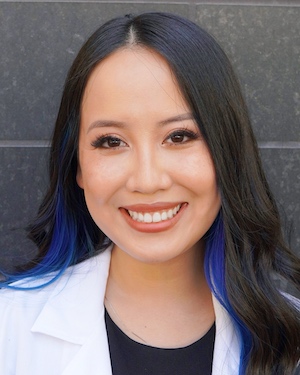
My Enemies Are After Me ⟩
March 2, 2022, by Teresa
Admissions Classes Fieldwork
Recently, I watched the stuff on Netflix about fraudsters and all I could think was “Wow, what I wouldn’t give to have their confidence.” Not to get anyone to send me $50,000, but because sometimes, it does feel like my enemies are after me . . . and by ‘my enemies,’ I mean the little voice in my head otherwise known as the “imposter.”
I felt like the biggest imposter ever when I was applying to OT school and when I started this program. If I had to rate my imposter syndrome on a scale of 0 (none) to 10 (worst) around this time, I’d put it at a 10. It was exacerbated both by being waitlisted and being fully remote. As I read the student ambassadors’ blogs, started meeting my classmates on Zoom, and learned from our amazing professors, I was simultaneously romanticizing this image of them in my head – that everyone else was so incredible and had it all figured out while I knew I always felt lost. I’d say I felt this way intermittently throughout my entire first year in the program.
In the past year, it’s resolved a lot. After 12 weeks of level 2 fieldwork, I felt my confidence increase as my competency in skills grew. Once we fully returned to campus last semester, I was comforted by hushed whispers from my peers who shared my confusion during classes. And then came two pivotal experiences this semester which mitigated my imposter syndrome significantly:
- An esteemed faculty member spoke to our class and shared that she still experiences imposter syndrome. That was just mind-blowing to me. There . . . was simply . . . no way? Not with all her achievements, success, and publications. Anyways, in OT, we love evidence-based practice, right? This individual urged us to search in our own history for evidence that we are indeed imposters in order to support the voice telling us we’re not good enough, don’t belong, or not ready for something. Here’s the punch line — you won’t find anything. You’re here at USC, doing the thing you set out to do, against all odds that might have stood in your way. The evidence speaks for itself.
- I heard this advice when I needed it most because it came at a time when I felt like other people were doing the romanticizing thing to me which I had been guilty of doing to others in the past. I had never seen myself as someone worthy enough to be looked up to, so to be placed in those situations felt . . . weird. Anyone who knows me knows that words of affirmation make me uncomfortable, which is something I am actively working on receiving better because it’s not me rejecting kind words, it’s the imposter. I want to see myself the way others see I have the potential to be, not in the distorted way the imposter tries to convince me of.
Going back to the baseline established at the start of this blog (which – you guessed it – we LOVE in OT), I’d say I now teeter around maybe 2 or 3. I entered “imposter” into the search bar on our website out of curiosity to see how I should frame this blog post and it returned ten blog hits from ambassadors past and present. They each approach it from a different perspective, which shows how pervasive imposter syndrome can be when you find yourself in a new or different environment that you’re not used to. But I think this also means you’re putting yourself in situations that challenge you to learn things you didn’t know before, experience growth throughout your life, and continue to prove people wrong, including that imposter telling you you’re a fraud. Sometimes, I hope I never rate my imposter syndrome at a 0 out of fear that it will indicate I’ve reached a threshold in my learning. Anyways, what I’m trying to say is you aren’t alone in this feeling. It can be difficult, but try not to compare yourself and your journey to others because we are only able to see what they choose to present to the world. Just give it some time. Both your confidence and competence will increase and with that, maybe you’ll learn to befriend your ‘enemies.’
⋯





